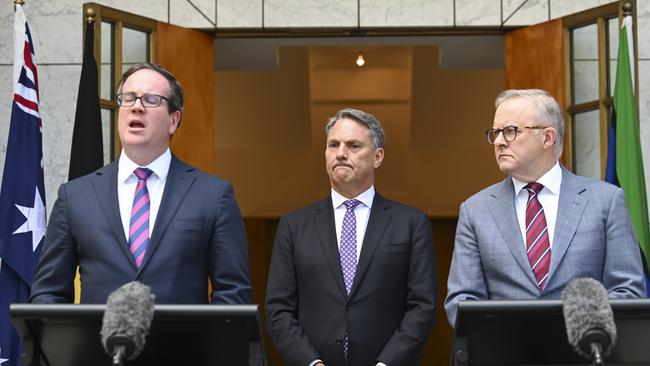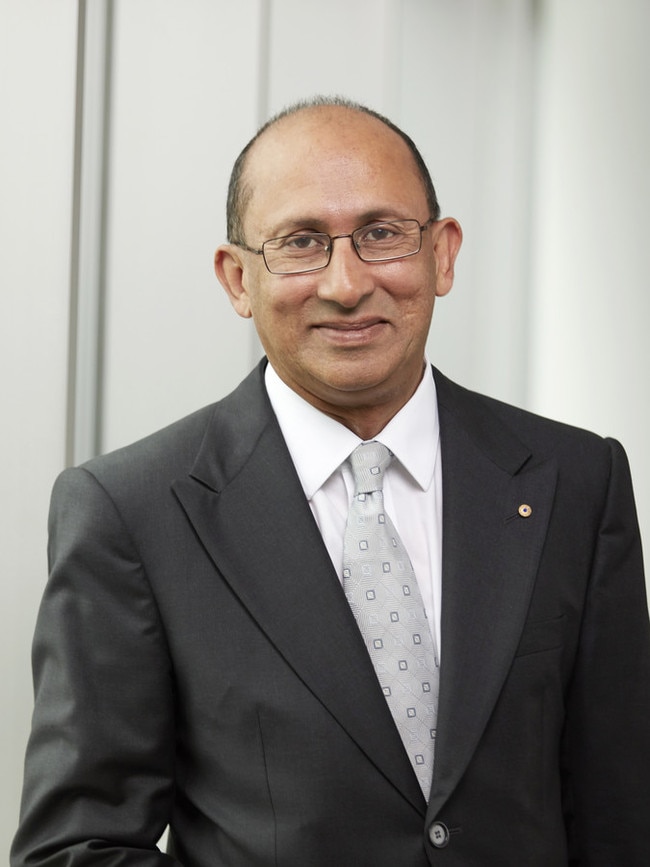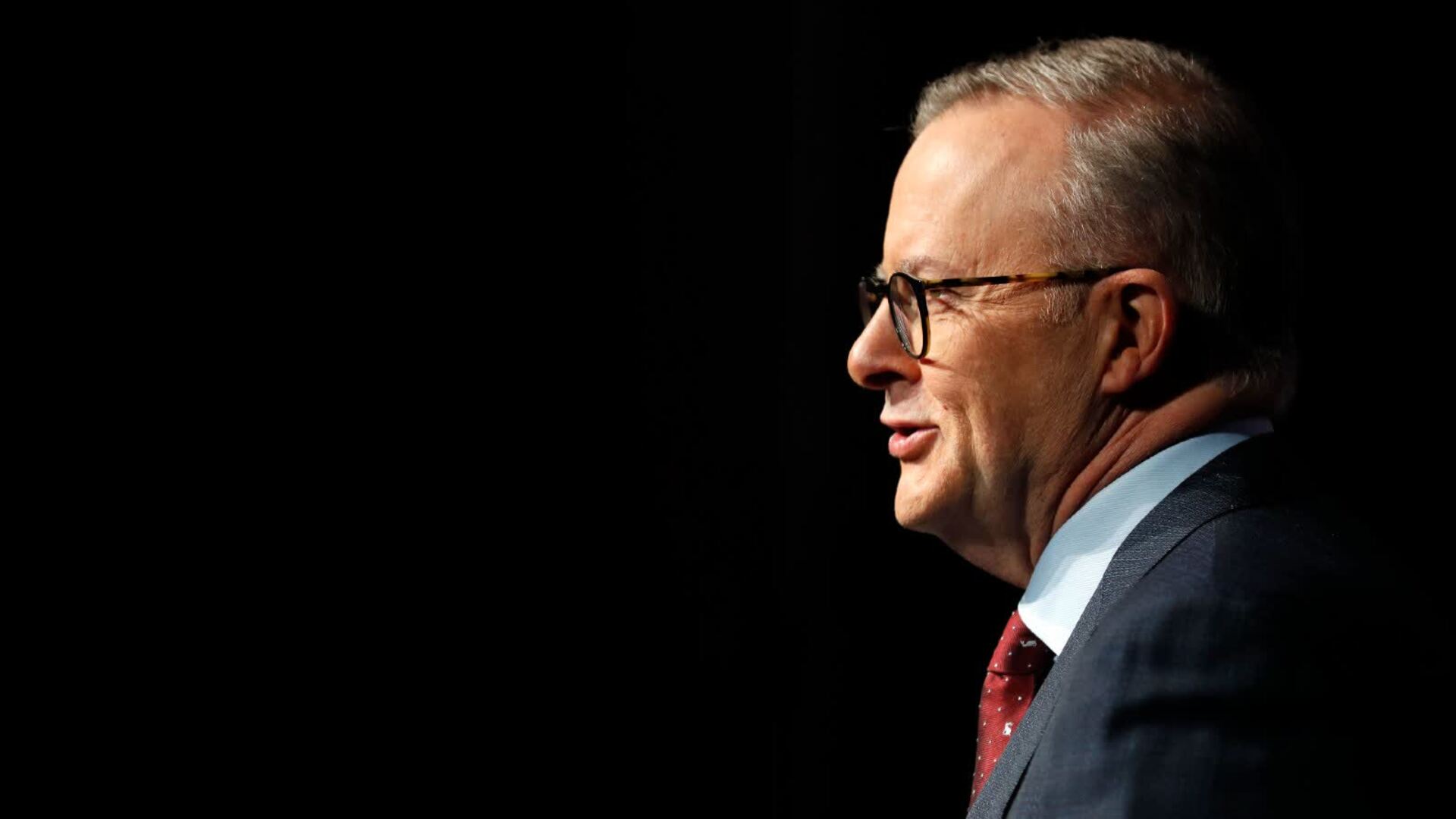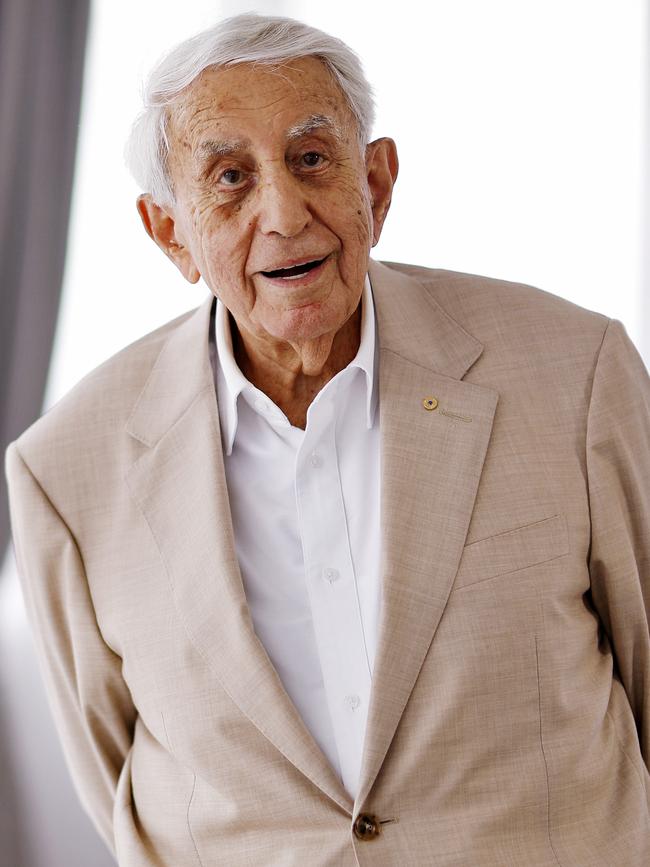
The Varghese review into commonwealth funding for strategic policy work is a confusing document, unsurprising given the strange impetus for the work in the first place. Did the Australian Strategic Policy Institute – where I am a senior fellow – have a target on its back? Four of the 14 review recommendations refer to ASPI – so almost 30 per cent of the recommendations relate to it in one way or another. This equates to the combined total of the four other organisations referenced in recommendations; each is mentioned once in terms of the same recommendation.
ASPI is rebuked for influencing a foreign government’s policy beyond the comfort of the full authority of the Australian government. The closure of ASPI’s Washington office is the remedy put forward by Varghese, but we aren’t provided with any plan to pull other organisations into line. There is no apparent issue with the Lowy Institute facilitating engagement with Joe Biden or Volodymyr Zelensky. The review should’ve taken the foreign influence pitchfork to all organisations equally.

Reviewing commonwealth taxpayer funding for strategic policy work is a necessary undertaking. But it must be done in a uniform way and metrics should be indistinguishable. But this is simply not the case for this review. For instance, the chief executive of the Perth USAsia Centre has his tenure of “over a decade” noted, but the Lowy executive director’s tenure of over a decade does not warrant mention.
Varghese declares contestability is a critical component of liberal democracy, so how is one answer to our think tank anaemia “more government”? Government is not in the business of risk-taking and colouring outside the lines; these are two essentials strategic thinking and research require.
Public servants are plugged into a system that rewards risk aversion and cultivates groupthink. Tasking this system with identifying strategic research priorities would be amusing if it weren’t so misguided. No serious career public servant is about to green-light research that is uncomfortable or risks making their job difficult in the future. What’s considered a strategic research priority today might be a red-line political issue tomorrow.

The government’s response to the review is also muddled. It agrees that by “being unencumbered by government bureaucracy and direction, the strategic policy sector supports policy contestability”. So in what world does this statement translate to adding government oversight to think tanks or confining strategic research to priorities set down by government parameters? The government’s response notes strategic research will now be guided by the concept of national defence, as per the 2024 National Defence Strategy. The US-Australia alliance “remains fundamental to our national security,” according to the government’s own strategy. Where, then, is the logic in agreeing to remove ASPI’s Washington footprint?
Varghese highlights the lack of a national tradition of philanthropic support targeted at think tanks. But he makes the mistake of underestimating the capacity of philanthropy in Australia. We must not accept the notion that commissioned research “cannot survive without substantial government funding”. It can and should. According to Forbes, Australia’s richest 50 people are collectively making bank, growing 4 per cent richer since 2023 and taking their combined wealth to $222bn. The Financial Review’s 2024 Philanthropy 50 list notes that gifts from our biggest private givers have grown 12 per cent to a record $1.25bn since 2023. The challenge is diversifying philanthropic causes. Thirty-one of the top 50 givers focus on health or medical research; 15 of the 50 private givers support the arts, but only four support national security- or defence-related research causes.
Australia needs a cultural revolution in the philanthropic sphere. We must advocate a sense of agency in national security matters among our billionaires. After all, such wealth was no doubt built upon our secure national base and facilitated in at least some part through Australia’s strong liberal democratic foundations. None of which can be taken for granted.


In the spirit of Christmas, here’s a wishlist of sorts, personalised for our richest tycoons. Gina Rinehart could gift strategic policy research funds to examine the character of our strategic culture. In other words, what would an “Australia first” strategy look like? Andrew Forrest might offer strategic research funds tied to understanding our energy (in)security. Harry Triguboff could fund strategic research into securing Australia’s sea lines of communication.
Mike Cannon-Brookes and Scott Farquhar could ignite the next generation of researchers to innovate AI and consider the security implications of machine learning. Anthony Pratt might fund an Australian chair in Australia, not just the US. Lindsay Fox could underwrite strategic research to overhaul Australia’s transportation network and inject some semblance of resilience.
Australia’s think tank ecosystem is struggling to survive. This review exercise will further impede the sector by inviting deeper government control over security and defence policy contest in Australia. Censorship and the institutionalisation of risk-adverse groupthink are some of the only things flourishing in Australia under the Albanese government. It’s high time for our billionaires to disrupt the sector.
Elizabeth Buchanan is a senior fellow at the Australian Strategic Policy Institute.




The Varghese think tank review and the response by the Labor government dropped just in time for the Canberra-bubble Christmas exodus. Plenty of ink has already been spilt on the politics of the review. But what of the content?